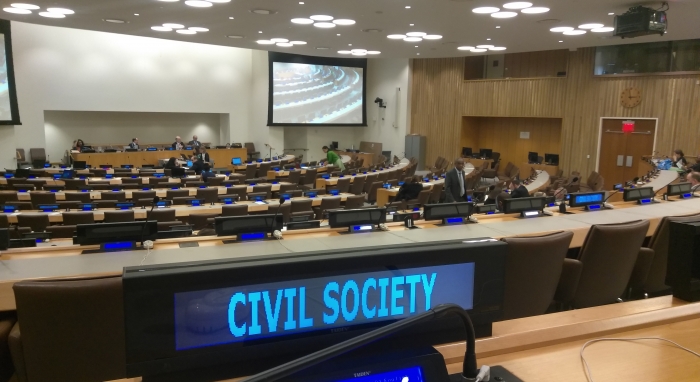ISHR

NGO Committee | States must facilitate not impede access for NGOs
The ECOSOC Committee on NGOs has just completed its first 2021 session after two postponed sessions due to Covid-19 restrictions. Failing to move with the times, the Committee did not allow for virtual participation of NGOs in Q&As, something States called out and which must be addressed at the next session in August.
Faced with an all-time high number of new applications the Committee Chair encouraged brisk consideration of applications – 1 minute per application – which enabled the Committee to consider 860 in all. Whilst 430 organisations were recommended for consultative status – a record number for the subsidiary body according to UN reports – the applications of NGOs that have been questioned repeatedly were once again deferred in the vast majority of cases.
The participation of civil society in the session was limited to NGO applicants engaging in the Q&A exchange with Committee members. These NGOs could only participate in person, denying NGOs that were unable to be present in person in New York (due to barriers caused by resource limitations and COVID-19) the opportunity to expedite their accreditation through the Q&A. No other NGO observers were allowed in the room.
That NGO applicants can only participate in Q&As in person has long been a controversial issue. Covid-19 made the inequitable nature of this practice all the more evident and was called out by several states in their statements. Mexico emphasised the importance of equitable access for NGOs and the opportunity for this objective to be furthered through digital tools and virtual platforms. Welcoming digital tools and virtual platforms, the United States expressed the importance of NGOs having a voice and the need to address massive backlogs. The need for transparency in the functioning of the NGO Committee was emphasised by both the US and Greece. In his closing remarks, Committee Chair Mohamed Sallam from Sudan stated that building upon this session, the Committee could consider expanding civil society participation in the future, including through virtual means.
The EU in its statement expressed concern about long-deferred cases, citing five examples for particular attention. One of those highlighted was the cases of the International Dalit Solidary Network IDSN that has been considered by the Committee for 14 years. In regard to the EU tactic, ISHR’s Maithili Pai noted, ‘The naming of individual cases is a welcome first step. However, given the unjustifiably prolonged periods for which certain NGOs are being deferred, States must take a strong position and be prepared to call a vote.’
With no votes called on the recommendation of accreditation for an NGO, fewer sparks flew between Committee members than in previous sessions. However, both Pakistan and Sudan disputed the legitimacy of a number of NGOs, some of which have already received ECOSOC accreditation, something challenged by others in the room. This kind of questioning of the legitimacy of accredited NGOs is not uncommon in the Committee. Where on previous occasions NGOs have been denied the right to respond to accusations made against them, it was encouraging that Committee members confirmed that NGOs be allowed a right to reply.
Looking ahead:
The next NGO Committee session will run from 30 August to 10 September this year.
‘This will be the moment for the Committee to address the discriminatory impact of the current Q&A system’, noted Pai.
The next elections to the NGO Committee will take place in April 2022. Members of ECOSOC, the parent body of the NGO Committee, will have the opportunity to vote for a whole new membership. ‘We urge the Committee and member states to fulfil their responsibility to enable civil society access and participation to the UN, and to promote reforms towards a fairer, and more expeditious accreditation process’, said Pai.
#OpenTheDoorToNGOs
